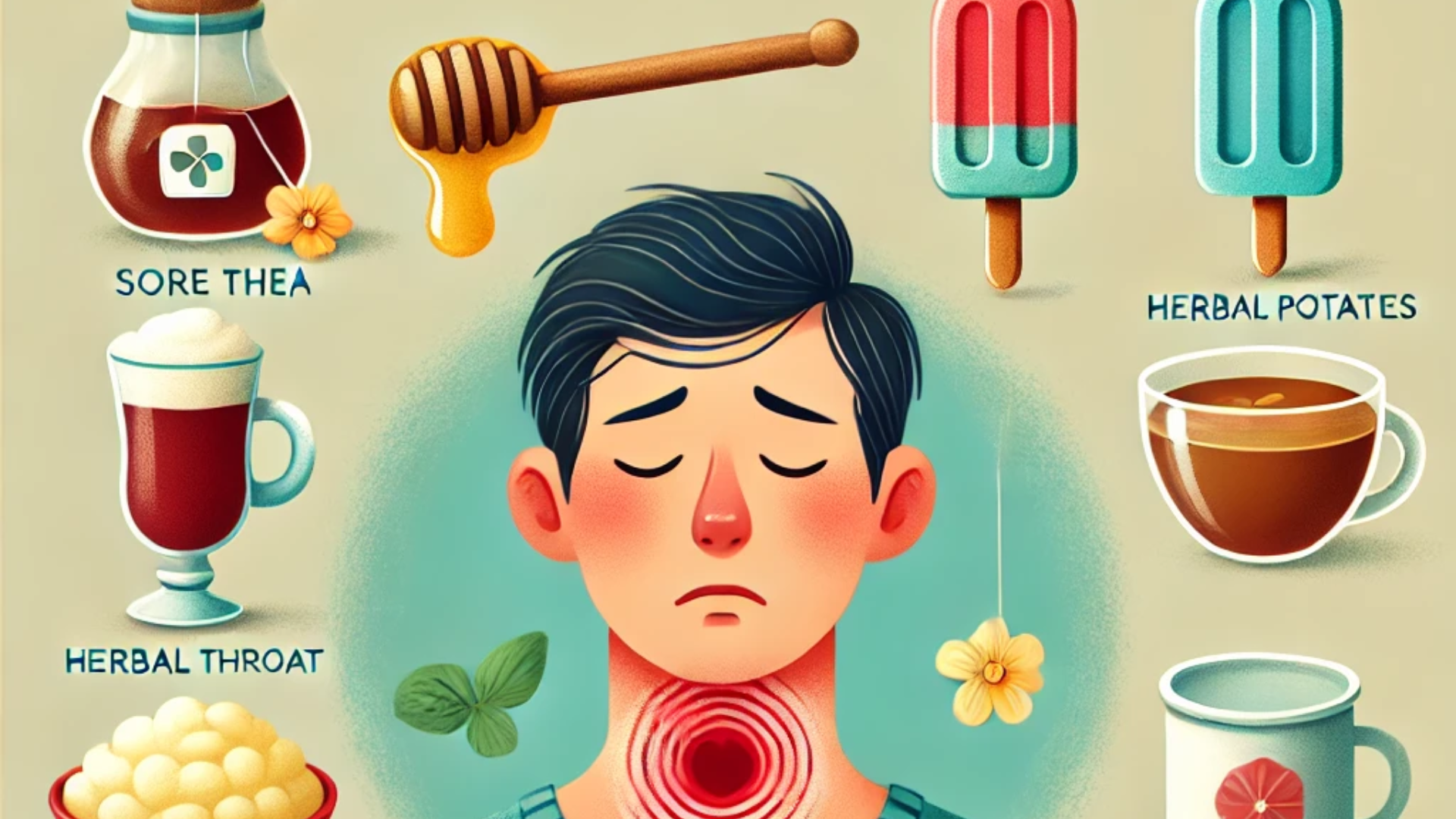
Strep throat is no picnic, seriously. Or should I say, no neck? If you have ever felt the raw, scratchy sensation that accompanies that bacterial infection, you know just how very uncomfortable it is. In this post, we’ll take a closer look at what causes strep throat and discuss the best foods to eat when you’re fighting off this illness to help move things along in the recovery process.
What is Strep Throat?
Strep throat is an infection that affects primarily the throat and the tonsils. The bacteria that cause this disease are called Streptococcus pyogenes, otherwise known as Group A Streptococcus, or GAS for short. This ever-troublesome bacteria become highly contagious through droplets of air one coughs out into and through sneezing, by shared food or drink; yuck, right?
Common Symptoms of Strep Throat
First, let’s run through the symptoms. If you have any of these, it may be time to see your doctor:
Severe sore throat that develops suddenly
Difficulty swallowing
Tonsils that are red, swollen, and may have white patches or streaks of pus
Small red spots on the roof of your mouth
Swollen lymph nodes in your neck
Fever and overall aching
Headache
Rash-in some cases
Left untreated, strep throat can cause rheumatic fever or kidney inflammation; therefore, it is worth having it checked!
What Causes Strep Throat?
As earlier stated, the main cause of strep throat is the bacteria known as Group A Streptococcus. Here’s how this usually happens:
Direct Infection: The bacteria may be directly transferred from an infected person to a healthy person through droplets coming from the respiratory tract. For example, if someone with strep throat coughs or sneezes near you and you breathe in those droplets.
Indirect Contact: You can also contract strep throat by touching any surface where droplets of the bacteria fall and then touching your face, mouth, or nose. Think about doorknobs, shared utensils, and even keyboards!
A Weak Immune System: It means that your immune system is usually run down—sometimes due to stress, lack of sleep, or other illnesses. You are very much susceptible to catching strep throat.
Age and Environmental Factors: Most cases of strep throat happen in children and teenagers, especially those in school or in daycare, where germs spread like wildfire. It also seems to peak in late falls and early springs.
What to Eat With Strep Throat
So, you’ve been diagnosed with strep throat-what’s next? In addition to getting plenty of rest and following your doctor’s treatment plan, diet also plays a crucial role in how quickly you recover.
These are some nourishing foods for the throat and immune system:
Herbal Teas
When it comes to a sore throat, herbal teas are especially soothing, sweetened with honey. Honey soothes the throat by coating it and has mild antibacterial effects, while the heat of the tea may help reduce pain and irritation. Chamomile, ginger, and licorice root are the recommended teas for more additional benefits.
Soft Foods
Whenever swallowing feels like gulping sandpaper, soft foods are your friend. Think mashed potatoes, yogurt, scrambled eggs, or applesauce; these foods will be easy on the throat and won’t further set it off.
Popsicles and Ice Cream
Cool treats such as popsicles and ice cream can take the sting out of the throat and ease discomfort somewhat. Just make sure not to choose acidic flavors; anything too citrusy may irritate a sore throat even more.
Smoothies
Packed with vitamins and antioxidants, smoothies are an easy way to get one’s nutrients down without much chewing. Blend up fruits, veggies, and yogurt, and even add a spoonful of honey for a throat-soothing treat that could be immune-boosting.
Warm Oatmeal
Oatmeal is another soft food that is not hard to swallow. Add some honey or mashed banana for extra flavor and nutrients.
Hydrating Fluids
With strep throat, hydration is essential to heal up. Now, sip hydrating warm fluids like water with a squeeze of lemon and add a spoonful of honey if you like. This is good for your throat if you can tolerate a little citrus. Alternatively, drink coconut water, a healthy alternative drink to rehydrate and a good source of electrolytes.
Foods to Avoid When You Have Strep Throat
Just as some foods can help improve your condition, others can exacerbate your symptoms. Here is what you need to avoid:
Spicy Foods: This would irritate your already sore throat.
Acidic Foods: Citrus fruits, tomatoes, and other acidic foods will further cause pain and inflammation.
Crunchy or Hard Foods: Chips, nuts, and toast can scratch your throat and make swallowing even more uncomfortable.
Dairy: Though dairy is not a taboo for all of us, at times, it may increase the thickness of mucus, exacerbating our throat condition.
It’s here Essential Foods to Eat for Managing Diabetes Mellitus
FAQS
Q: Is it okay to eat ice cream when I have strep throat?
A: Yes, the coldness of ice cream numbs the pain of a sore throat, but try flavors that are not highly acidic to avoid irritation.
Q: Should I avoid dairy products while having strep throat?
A: For people, especially, this can make mucus thicker and may be quite uncomfortable. Limit them if you find this happens to you.
Q: What drinks might help alleviate the symptoms of strep throat?
A: Herbal teas with honey, warm water with lemon and honey, and coconut water help soothe your throat and hydrate your body.
Q: How long do I need to have a soft-food diet?
A: Continue having soft foods as long as your throat feels sore and you have difficulty swallowing. You may start with solid foods after you’re feeling a little better. Gradually add solid foods to your diet.
Conclusion
Strep throat is no picnic, but knowing what to eat-and what to avoid-can make your recovery a bit more bearable. Focus on soothing, nutrient-rich foods that are easy on your throat, and remember to stay hydrated. Pair this with your prescribed treatment, and you’ll be back on your feet in no time!

